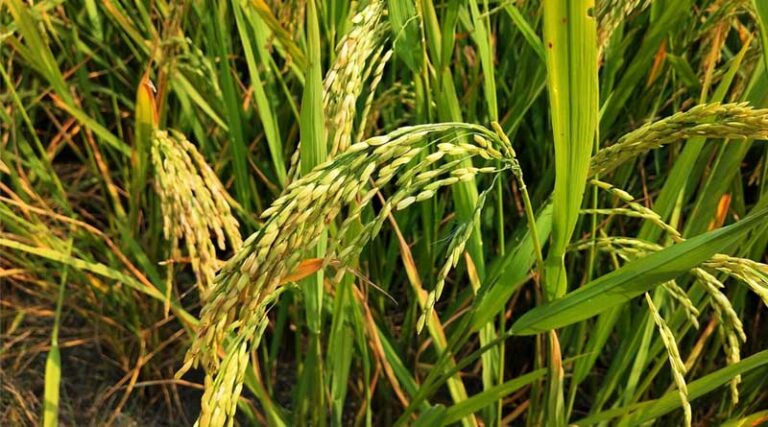
Madhya Pradesh Issues Advisory on Pest Threats in Paddy and Groundnut Crops
06 September 2025, New Delhi: The Department of Farmers’ Welfare and Agriculture in Datia district has issued an advisory to farmers regarding pest and disease infestations in paddy and groundnut crops. Officials noted that continuous heavy rainfall in recent weeks has caused damage to several crops and delayed sowing in many areas, while paddy and groundnut remain the major crops under cultivation.
According to the department, late-sown paddy fields are currently facing issues of weeds, pests, and diseases. Farmers have been advised to manage weeds through manual weeding or the use of cono weeders. For chemical control, the department recommended the application of Bispyribac sodium 10% SC at 250 ml per hectare within 15–25 days of transplanting.
Stem Borer Infestation in Paddy
Reports confirm the presence of stem borer in paddy crops. The pest is identified by the appearance of white streaks on leaves, drying of central shoots (locally referred to as sukdi), and damage to panicles, which remain white and unfilled. Officials warned that, if left uncontrolled, the pest can severely reduce yields.
Recommended control measures include:
- Chlorantraniliprole 15.5% SC – 150 ml/ha
- Lambda-cyhalothrin 5% EC – 250 ml/ha
- Cartap hydrochloride 50% SP – 1 kg/ha in 500 litres of water
Brown Planthopper Alert
Farmers were also cautioned against the possible resurgence of the brown planthopper, which caused extensive crop losses in the district last year. Symptoms include yellowing and drying of leaves, wilting of plants, and rapid spread across fields.
The department suggested the following control options:
- Pymetrozine 50% WG – 300 g/ha
- Acetamiprid 20% SP – 500 g/ha in 500 litres of water
Groundnut Leaf Spot Disease
Groundnut fields are showing signs of leaf spot disease, with brown lesions on leaves. To prevent yield losses, farmers have been advised to spray fungicides such as Hexaconazole 5% SC, Tebuconazole 25.9% SC, or Propiconazole 25% SC at the rate of 1 ml per litre of water.
Advisory for Vegetable Nurseries
The department also released guidelines for farmers preparing vegetable nurseries. Officials recommended raising nursery beds at least six inches high to prevent waterlogging, mixing well-decomposed farmyard manure in the soil, and ensuring seed treatment before sowing.
For disease and pest management in nurseries:
- At 5–7 days after sowing, apply Carbendazim + Mancozeb (1 g per litre of water).
- After 3–4 days, apply Imidacloprid 17.8% (3 ml in 15 litres of water).
- Repeat the cycle after 15 days if necessary.
Rabi Preparations
With several farmers unable to sow on time due to excessive rainfall, the department has advised early field preparation for the upcoming rabi season. Farmers are encouraged to arrange improved seed varieties in advance to ensure higher yields.
Also Read: India Slashes GST on Tractors and Agri-Inputs to Boost Farm Economy
📢 If You’re in Agriculture, Make Sure the Right People Hear Your Story.
From product launches to strategic announcements, Global Agriculture offers unmatched visibility across international agri-business markets. Connect with us at pr@global-agriculture.com to explore editorial and advertising opportunities that reach the right audience, worldwide.






